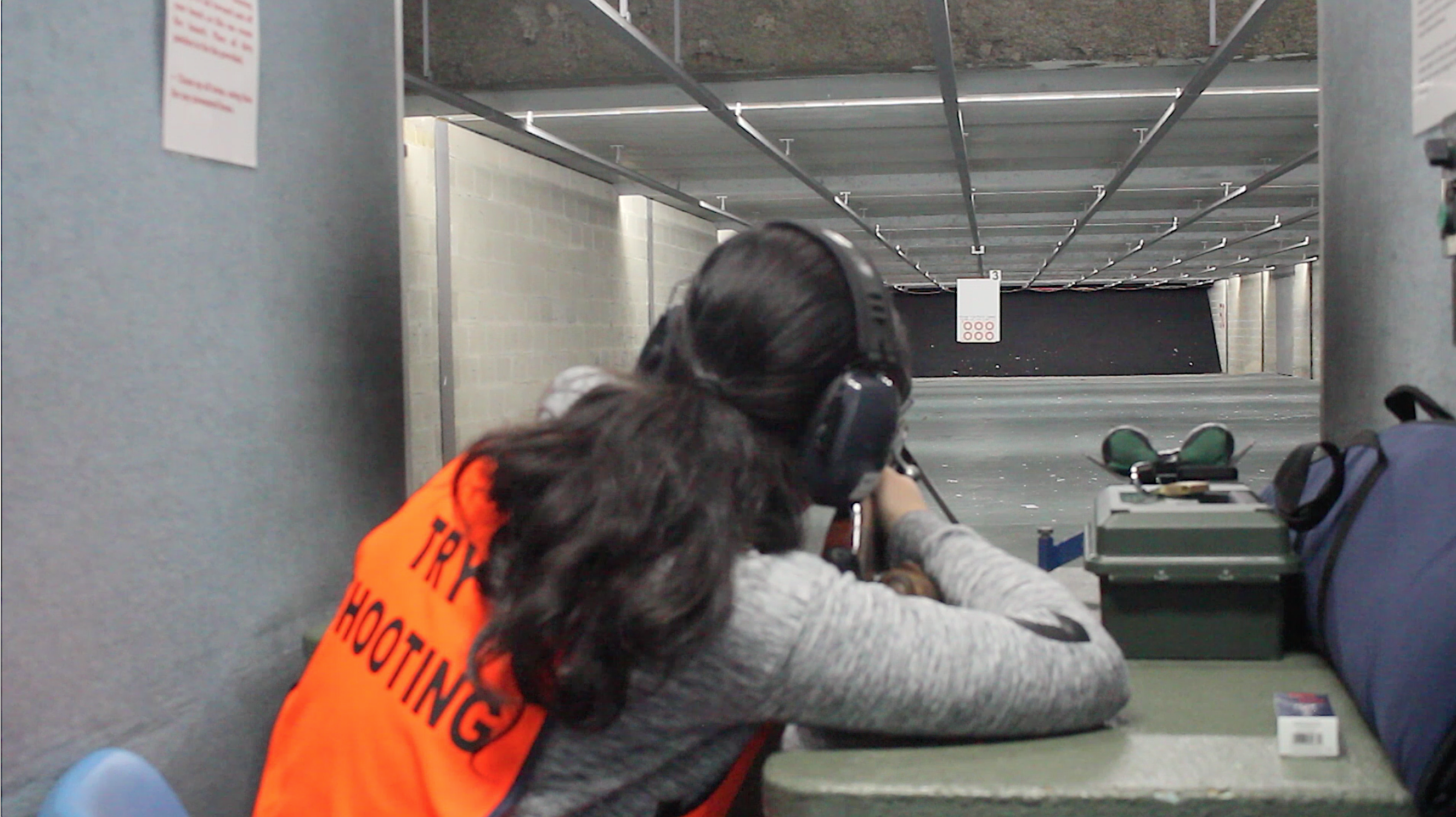Guns have been in the news recently for all the wrong reasons: the fatal shooting in July in West Pennant Hills, Sydney, of two teenagers by their father, John Edwards, and of six family members in Margaret River, WA, by grandfather Peter Miles in May.
Debate about gun control in the US, sparked by the seemingly never-ending series of mass shootings there, often cite Australia’s laws – tightened following the 1996 Port Arthur massacre – as a model.
Those laws are now under scrutiny again, following the recent horrific incidents. But shooting remains a popular sport for many Australians, who practise it at ranges around the country, including St Marys Indoor Shooting Centre in western Sydney, where Mr Edwards was a member.
Despite his record of domestic violence, he was able to obtain a permit which enabled him to get a handgun.

St Marys has said it is cooperating with police in their investigation into Mr Edwards’ shooting of his son, Jack, 15, and daughter, Jennifer, 13. But staff and shooters at the club the sport is safe and fun.
Diana Melham, executive director of the Sporting Shooters Association of Australia (SSAA), which owns the St Marys range, calls it a family activity.
“The sport is inclusive, there are no barriers when it comes to age, even ability, and it’s a family-orientated sport,” she says.
“It’s a great community sport which is welcoming to everyone who wants to try it, no matter what their ability is.”
Shooting wasn’t anything out of the ordinary for Ms Melham’s own family, as her grandfather and uncles all participated in the sport, but it was her father who introduced her to it at a young age.
“I started shooting when I was 14, I was taught safety and to respect the firearm by my father. Now, as an adult, to be working in an industry that gave me special time with father is very rewarding.”
For someone visiting the range for the first time, it seems oddly quiet at first, until you make your way through to the main foyer, where all the action happens.
A glass wall separates the shop from the range, enabling spectators to watch shooters trying out their weapon of choice.
The click-clack of guns being reloaded, and the loud booms that come from bullets being discharged, can be clearly heard.
Before progressing to that side of the room, though, shooters have to fill out forms which ask various questions about their mental health and criminal history.
The range offers various courses for beginner shooters and provides a safe experience with firearms. Participants in the Try Shooting course learn the fundamentals of the sport, including safety, positioning and ways for beginners to become comfortable with a gun.
The SSAA’s policy and range manager, Mitch Newbery, became an instructor because he wanted to give people the “right” perception of guns, he says.
“I’ve always had an affinity with the sport, and by becoming an instructor it would help share my love and make sure people operated them in a safe and confident manner.”
The other side of the gun culture in Australia is a bit rough. with massacres in Milperra, south-western Sydney, in 1984, and in Hoddle Street and Queen Street in Melbourne, both in 1987.
Following those tragedies, several states introduced compulsory registration of all guns and restricted the availability of self-loading rifles and shotguns.

Then came the Port Arthur shooting in which Martin Bryant killed 35 people and injured more than two dozen others. Australia had had enough.
Prime Minister John Howard introduced the National Firearms Program Implementation Act 1996 to get rid of semi-automatic and pump-action guns and introduce licensing. More than 700,000 guns were also destroyed in a federal buyback scheme, which saw the government pay people to surrender newly-prohibited types of guns.
In 2002, Australia further tightened gun laws, restricting the caliber, barrel length and capacity for sport shooting handguns.
Nowadays, guns must be registered and locked away safely, and owners must complete a safety course and pass a police check.
Robert Borsak, a member of the Shooters, Fishers and Farmers Party, believes that laws should focus on the people who wish to own a gun and not the weapon themselves.
“The ideal laws, as far as we are concerned, are those that don’t regulate the gun, but regulate the person who owns it, use it and or gets access to it,” he says.
“We believe in empirical evidence and fact-based law-making. This is rarely done in Australia, if at all.” – Kamilia Hanna


